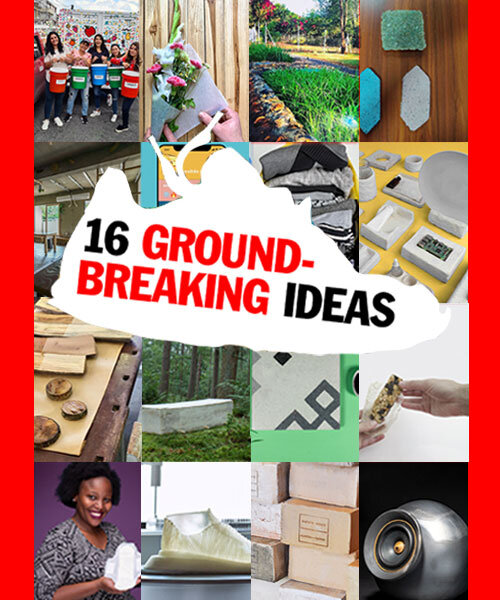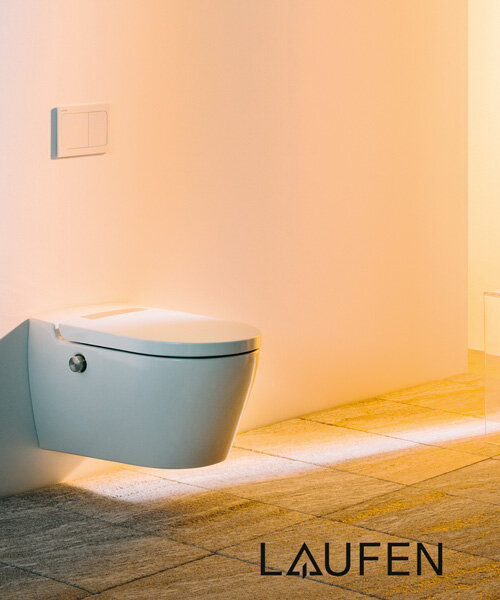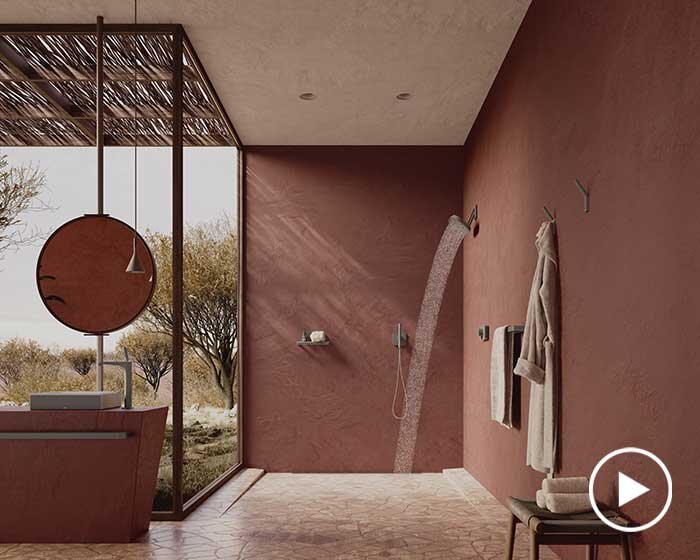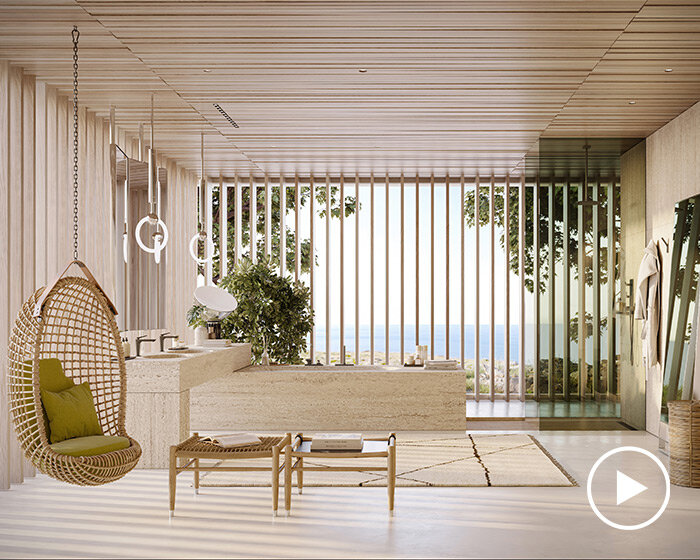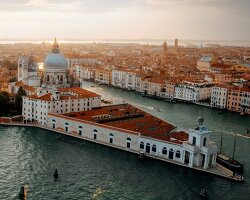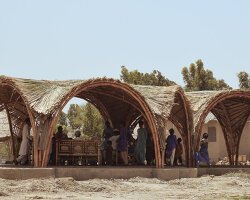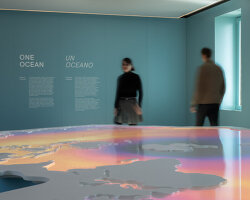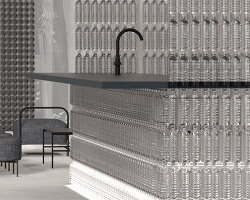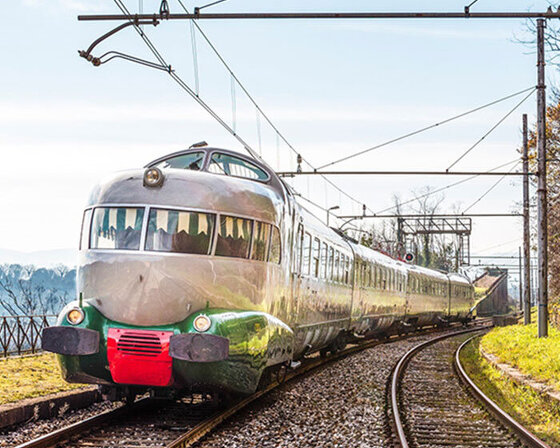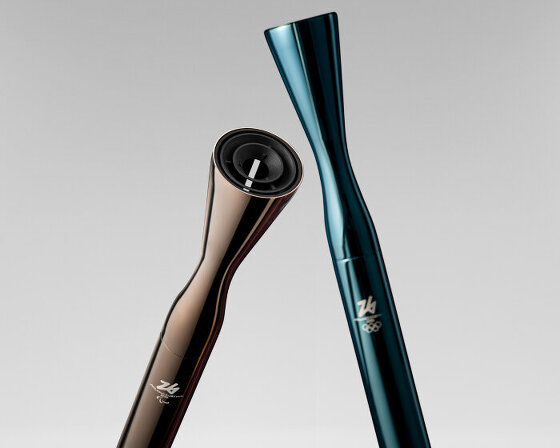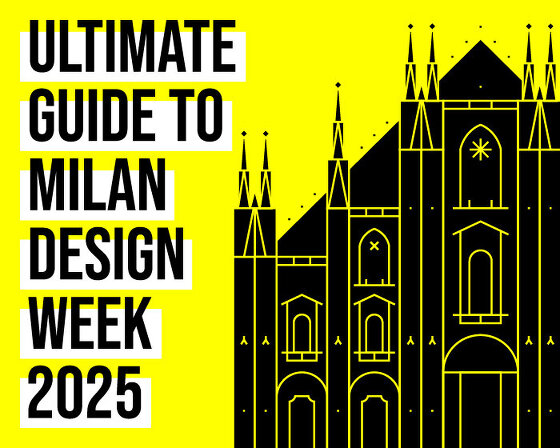with an out-and-out urgency to confront the climate crisis, 16 winning designs are hungry for creative action. ‘over the past year, many of us have wondered: how will the creative industries respond in a time of unprecedented crisis?‘ comments richard van der laken, co-founder and creative director of what design can do. ‘creatives are no longer willing to wait for the change they want to see. they’re determined to be part of building a better future; one which redefines not only our relationship with waste, but our relationship with nature.‘ following the no waste challenge entry call in march 2021, what design can do in partnership with the IKEA foundation reveal how designers address this huge impact of waste on climate change. the winners receive €10,000 euro in funding and launch full-stream-ahead into a development program, turning every idea into reality.
to see the full set of designers who took on the enormous no waste challenge, see designboom exclusively below and visit the link here.
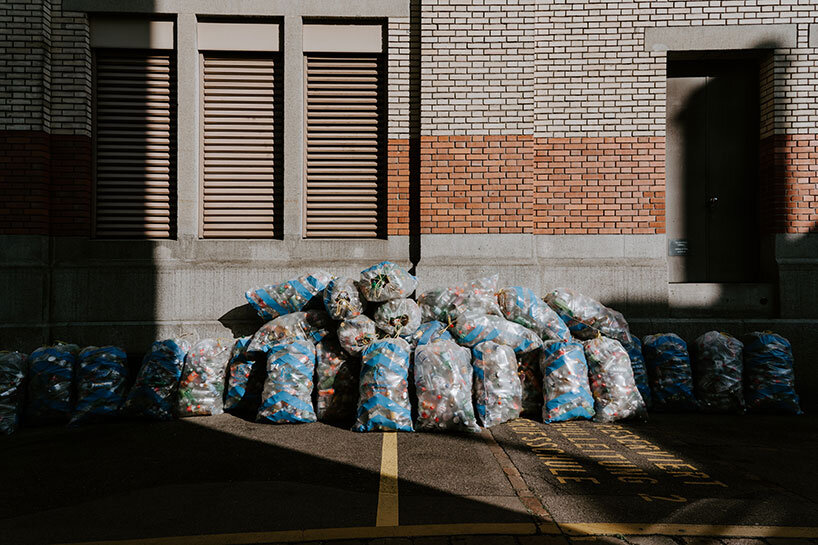
all images courtesy of what design can do
waste is not just an urgent and global issue – it is and continues to be important to a growing number of innovators and designers worldwide. no waste challenge, launched in january 2021, asks not just for ideas but for bold solutions that can eventually be applied. specifically, 1,409 representatives from 105 countries were reviewed by a jury comprised of 12 leading experts and narrowed down to nominees who, in their turn, exceed expectations and excel in creativity, scalability, feasibility and most certainly impact.
‘in a turbulent year, this shows that the creative community is willing and able to break away from centuries of linear thinking and bad design. and through redefining our relationship with waste, these ideas also help us to recalibrate our relationship with design: looking at ways it can be restorative and regenerative, instead of merely productive or destructive,’ summarizes richard van der laken.
from entire systems of production to triggering consumer habits, the winners definitely add up to an image of a changing world. projects all the way from amsterdam, são paulo and rio de janeiro, dehli, nairobi, tokyo and mexico city answer the call with both optimism and responsibility. the specific cities were chosen following conducted local research in each location as to understand the diversity of perspectives on waste around the world. with a holistic and broad range, the rooted problems in the different countries ensure various solutions that contribute to more circular ways of living.
see the 16 no waste challenge innovative winners below!
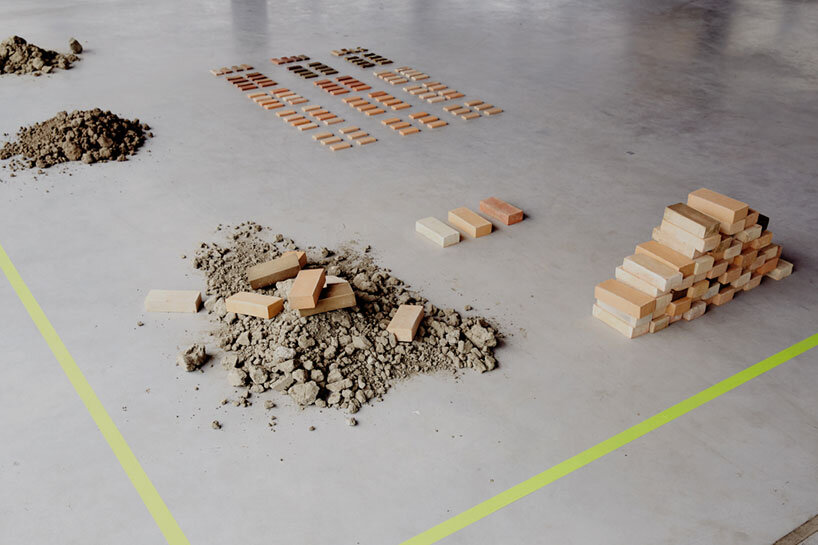
name: packing up PFAs
country: netherlands, amsterdam
designer: emy bensdorp
due to industrial waste-mismanagement, huge mountains of toxic polyfluoroalkyl substances (PFA) are found around the globe in soil, water, wildlife and people. to solve this problem, packing up PFAS by emy bensdorp offers a PFA clean-up solution through a process that turns polluted soil and clay into clean ceramic bricks for building.
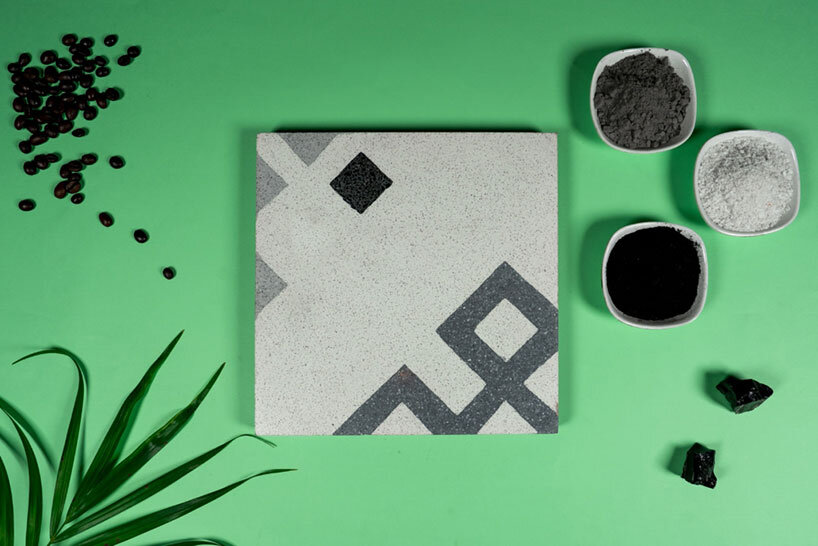
name: carbon tile
country: india, delhi
designer: tejas sidnal
the indian startup by tejas sidnal upcycles carbon recovered from tire pyrolysis waste into beautiful materials and architectural products. organized by carbon craft design, the material innovation minimizes the polluted air by repurposing the burnt residues into carbon tiles.
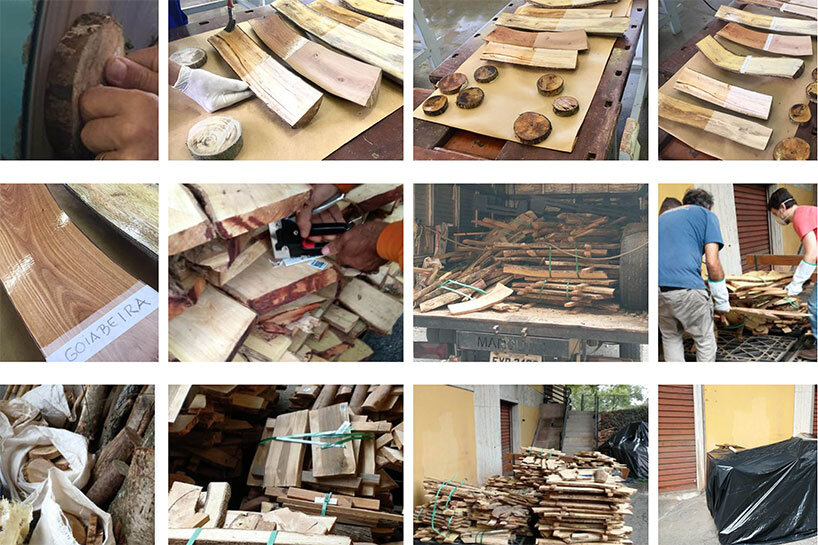
name: dapoda: design living lab
country: brazil, são paolo
designer: tiago schutzer
dapoda: design living lab by brazilian designer tiago schutzer aims to create and implement a pilot project that values the wood from tree pruning (branches and whole tree suppressions) of the urban forest of são paulo. overall, the raw materials are integrated within circular economy principles as well as valued through professional courses and workshops.
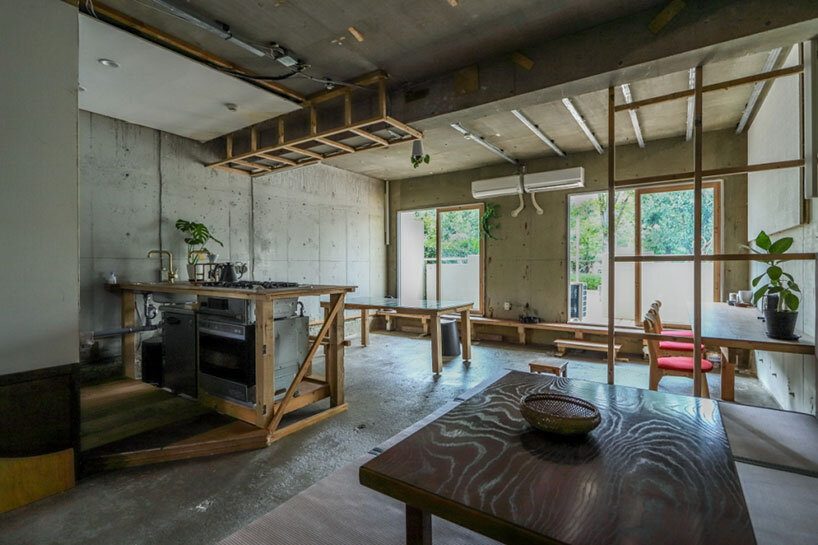
name: project R
country: japan, tokyo
designer: yasuyuki fukatsu
project R by japanese designer yasuyuki fukatsu is an experiment in sustainable living. the triggering question is whether we are living in a sustainable way. to solve this, R, an upcycling center and lab, inviting people to learn about circular design techniques and lifestyles.
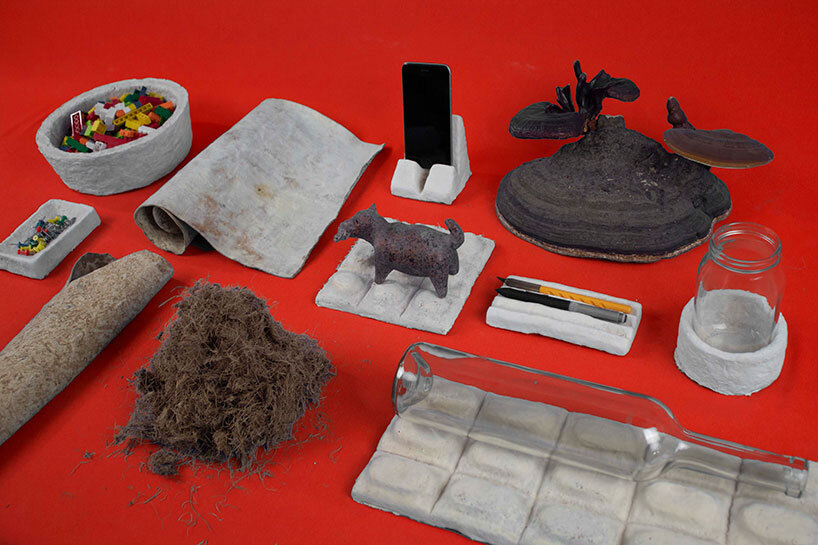
name: RADIAL biofabrication platform
country: mexico, mexico city
designer: ricardo muttio limas
using fungal biotech, RADIAL biofabrication by mexican designer ricardo muttio limas transforms agricultural waste into carbon-neutral materials replacing styrofoam, MDF as well as animal and plastic leathers. through the platform, materials with different characteristics ranging from impact resistance, low density, insulation, high flexibility as well as fireproof are developed – all 100% compostable.
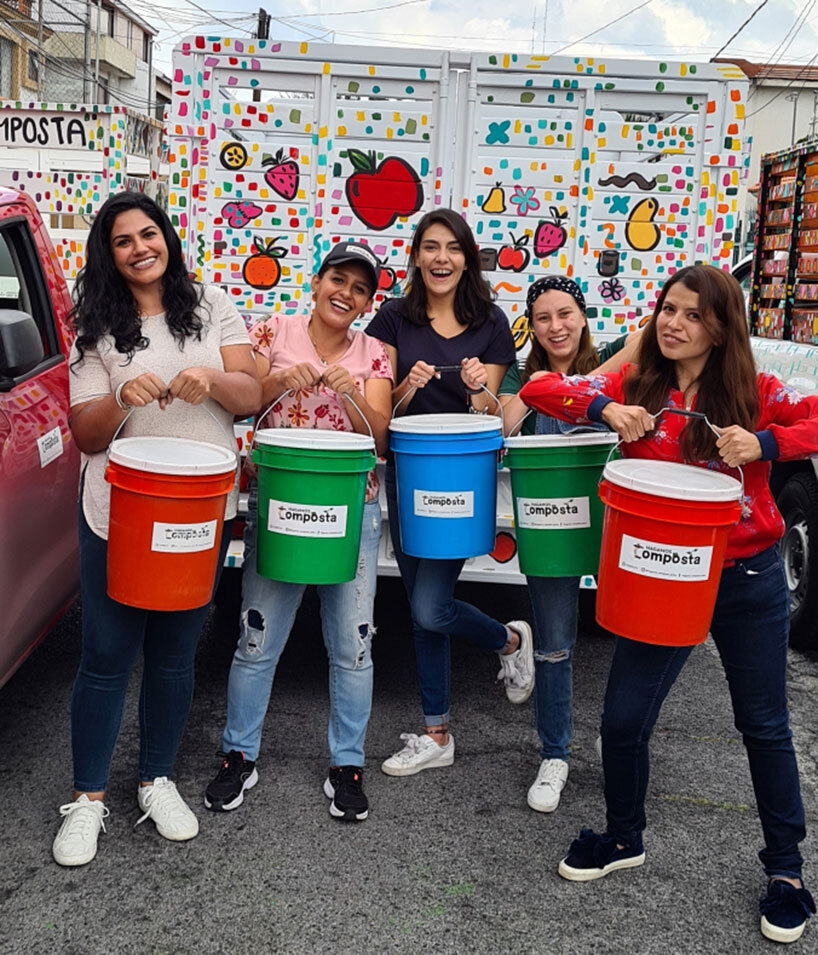
name: hagamos composta
country: mexico, mexico city
designer: gerardo montes de oca sierra
hagamos composta strives to reduce the amount garbage produced in cities through an organic, home pick-up service in colorful buckets. the organic waste is transformed into compost re-incorporating it into the soil and providing nutrients. this way, pollution is reduced whilst everyone has the opportunity to compost their organic waste responsibly. gerardo montes de oca sierra’s service is available in 8 cities in mexico and 2 in honduras.
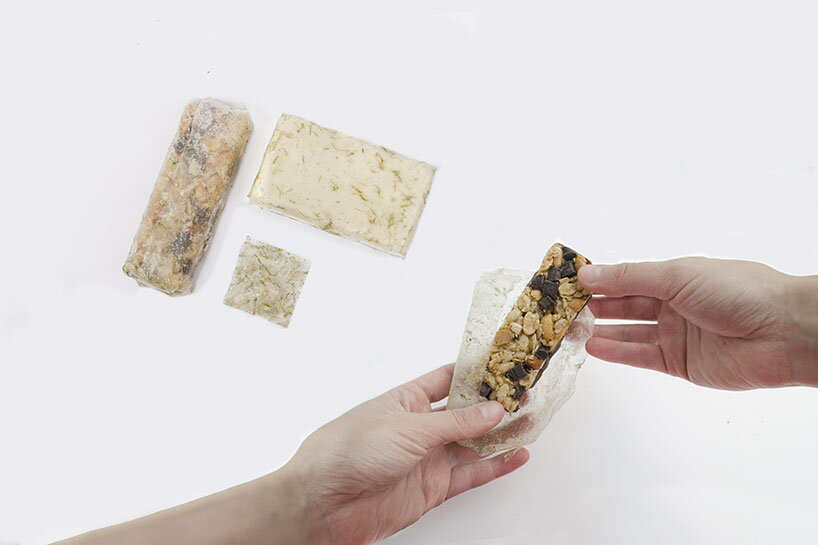
name: sustrato
country: mexico, mexico city
designer: andrea michael de la peña aguirre
combining ancient techniques, contemporary design and waste from the pineapple industry, sustrato by andrea michael de la peña aguirre is an experimental project transforming local waste into biomaterials. through analysis and research, sustainable materials and products such as rope, bioplastic and felt are developed.
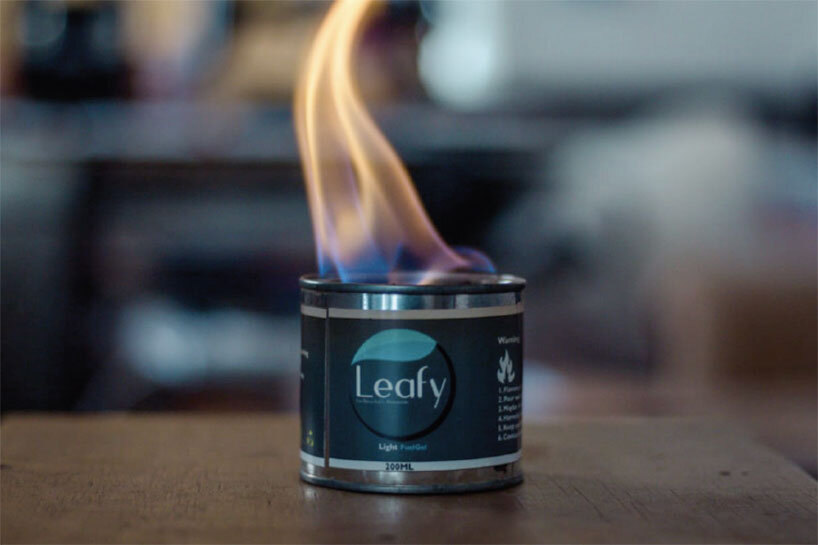
name: leafylife
country: kenya, nairobi
designer: peter gachanja
800 million diapers are used annually in kenya. poor waste management however cause a menace that is hazardous to the environment. here comes leafylife: the recycling process developed by peter gachanja uses a unique technology where benign organic chemicals turn dirty diapers into fuel and construction materials.
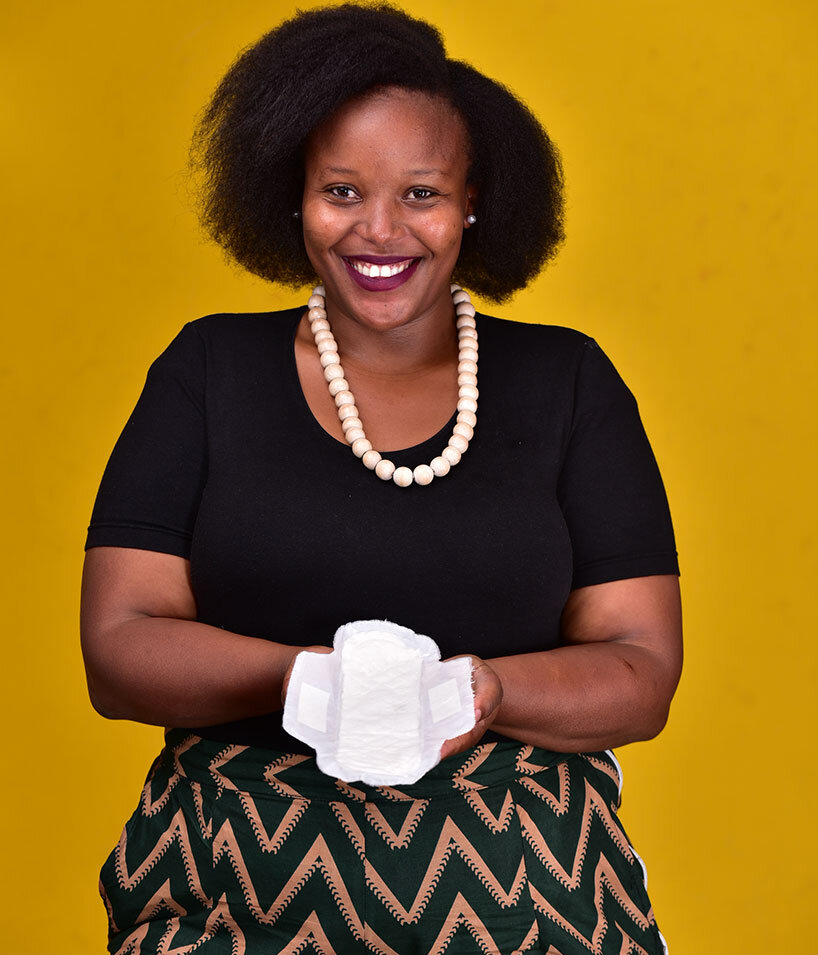
name: nyungu afrika
country: kenya, nairobi
designer: mary mureithi
according to UNEP, menstrual hygiene products emit about 15 million tones of gases during the manufacturing process and can take up to 35 million barrels of oil to produce. to fight this, mary mureithi sets up circular design model nyungu afrika. the business aims to create an impact with biodegradable, low-cost period products made from pineapple and corn husk waste.
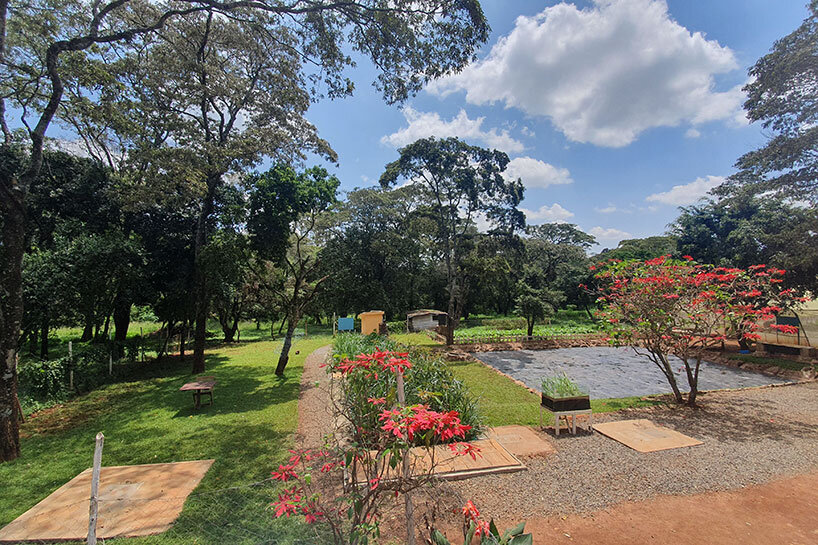
name: wastewater to green parks
country: kenya, nairobi
designer: mshila sio
a specially designed hardware system by mshila sio turns wastewater into lush greenery using an innovative hydroponic system to host macrophyte plants. since the greenery acts as a natural filter, no energy or chemicals are needed. the result is 70% of wastewater being reclaimed and reused or discharged responsibly, fighting against one of africa’s biggest burdens.
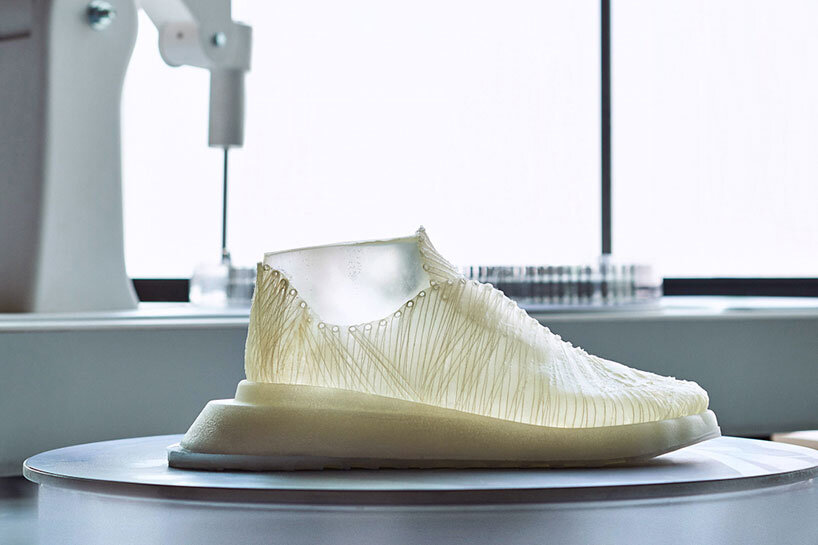
name: modern synthesis
country: united kingdom, london
designer: jennifer keane
london-based biomaterial startup modern synthesis blends fashion with biology. set up by jennifer keane, the biofabrication process employs microbes to grow customizable and fully circular materials for the fashion industry using local agricultural waste, like those from apple farms. the strong yet lightweight results becomes a powerful opportunity for design and performance customization.
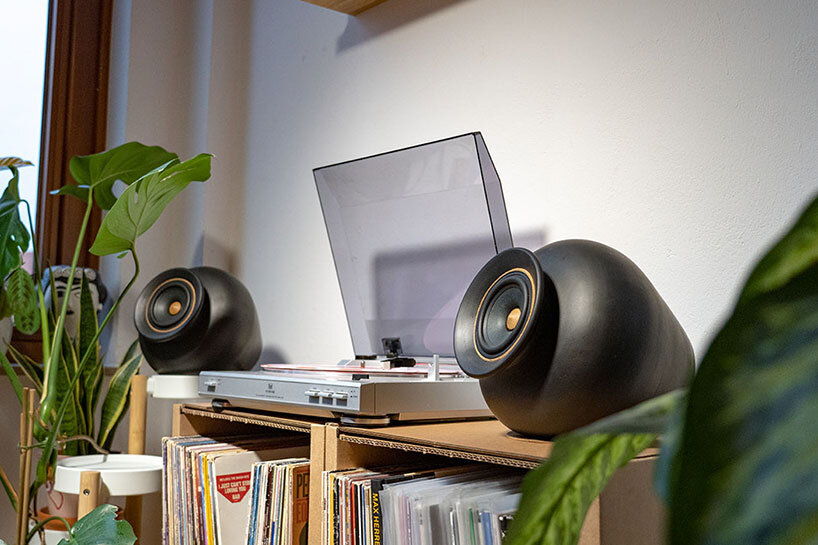
name: mapu-handmade clay speakers
country: germany
designer: philine von düszeln, pablo ocqueteau
designed by philine von düszeln and pablo ocqueteau, mapu are eseentially handmade sound systems crafted out of clay. as the two worlds of technology and tradition merge, heritage-led-innovation comes through. being the world’s first speakers made of clay, wood, cork and wool, the german design is locally produced and packaged using 100% bio-degradable waste materials.
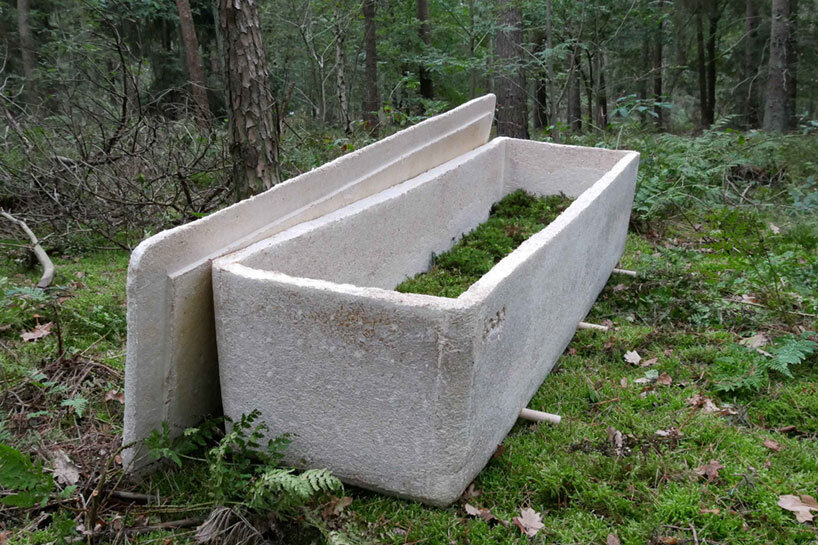
name: living coffin
country: netherlands
designer: bob hendrikx
on a mission to restore nature, living coffin by dutch designer bob hendrikx feeds the earth. the fully biodegradable casket made out of mycelium fungi, turns into compost within 45 days. specifically, mycelium is nutrients for over 92% of all plant species and is known as nature’s biggest recycler.
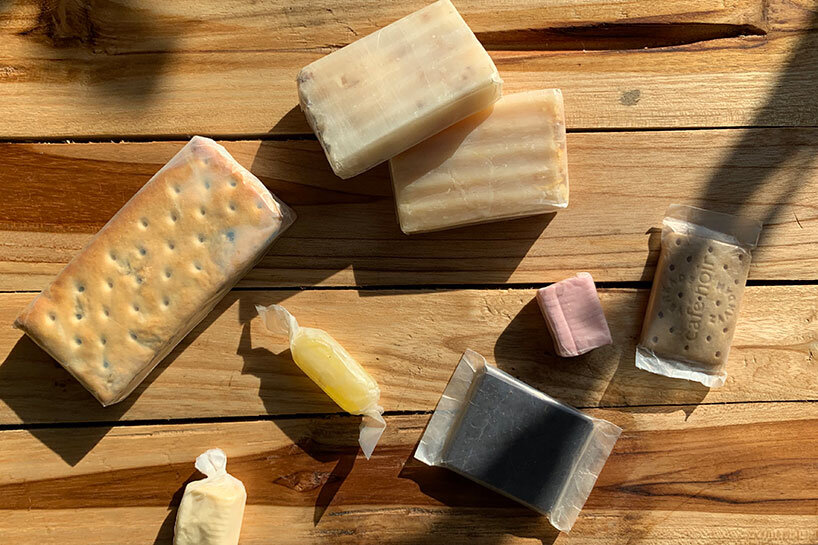
name: unplastic: waste is optional!
country: netherlands, amsterdam
designer: francois schockaert
designed by francois schockaert and developed by outlander materials, unplastic is the answer to a no waste challenge. made from upcycled food industry sources, by-products and brewery waste, an alternative to commercial-use packaging is introduced.
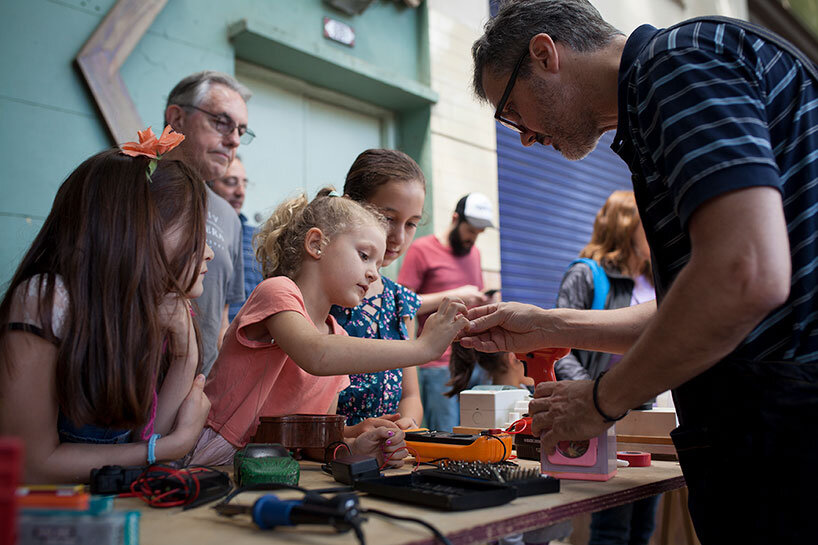
name: reparar.org V2.0
country: argentina
designer: melina scioli
although at a pilot stage, reparar.org by melina scioli promises repair, reuse and correct disposal all across latin america. the online directory helps anyone find trustworthy repair and recycling services while at the same promoting the work of the workers themselves. while the platform provides rating and searching across different locations within buenos aires, a culture of care and waste reduction is stimulated.
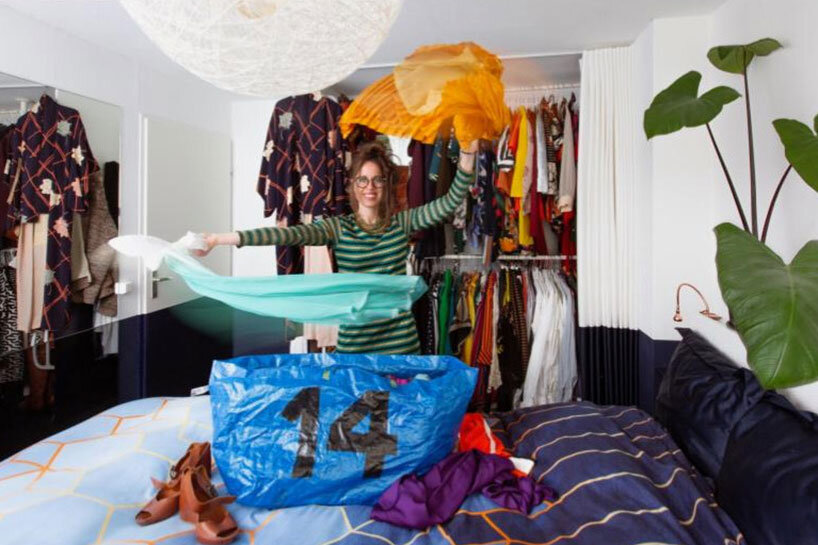
name: clothing loop
country: netherlands
designer: lena hartog
dutch platform clothing loop makes it easy and fun to share bags of pre-loved clothes by connecting people in local communities. lena hartog sets up the clothing swap process for over 7500 participants spread over more than 210 chains in the netherlands. to make the loop more personal, users can share a photo with their new garment in the corresponding whatsapp groups.
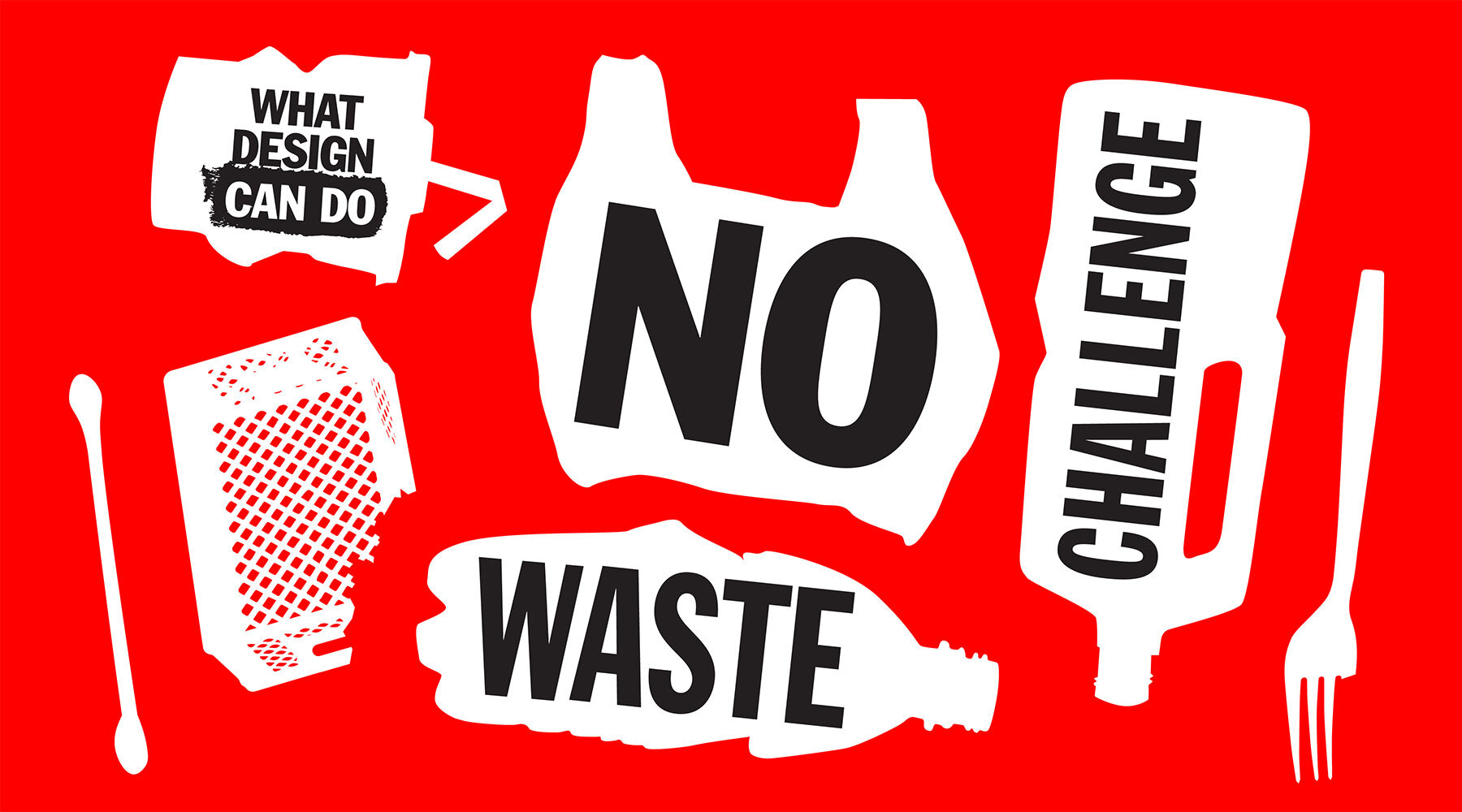
competition info:
organizer: what design can do
competition: no waste challenge
partner: IKEA foundation
